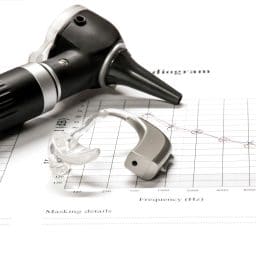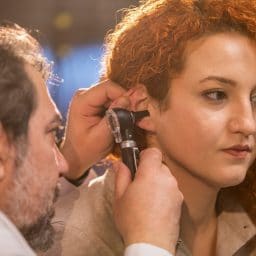Trouble Processing Sounds Associated with Decline in Other Cognitive Functions

Attending community crafting classes is a great way to spend time with friends, learn new skills and keep your brain sharp. Another way to protect your brain’s health is to treat your hearing loss early. As one study reveals, untreated hearing loss is linked to cognitive impairment. What the Study Shows Rodolfo Sardone and his…
Hearing Aids Can Help Improve Listening Fatigue

You know that feeling of exhaustion you get after leaving a dinner party or a conference meeting at work? That feeling is called “listening fatigue,” and for people with hearing loss, it sets in much sooner and with less stimuli than for someone with normal hearing. What Causes Listening Fatigue? The ears and brain work…
Earwax Removal

Causes of Earwax Blockage A blockage of earwax is usually caused by an overproduction of earwax or insufficient cleaning. Surprisingly, the most common cause of a blockage is incorrect at-home earwax removal. Often, instead of cleaning out the earwax it is just pushed deeper inside the ear. Earphone and ear plug usage can also cause wax buildup, as the earphones…
What is Unilateral Hearing Loss?

What is Single Sided Deafness? Sometimes referred to as unilateral hearing loss, single sided deafness is a condition in which an individual experiences hearing loss in only one ear but can hear normally out of the other ear. While most patients with a hearing impairment suffer from bilateral (two-sided) hearing loss, SSD affects approximately 60,000…
What is Sudden Hearing Loss?

For most people who experience hearing loss, the condition comes on gradually over a period of years. In rare cases, an abrupt loss of hearing occurs with little or no warning. This condition is known as sudden sensorineural hearing loss (SSHL). What is Sudden Deafness? Sudden deafness is an unexplained and rapid hearing loss that…
What is Noise Induced Hearing Loss?

How Can Sounds Hurt Your Ears? Background sound is a constant in our busy lives. Normally, background noises are at safe levels that do not negatively impact our hearing. But repeated exposure to noise above 85 decibels (dB) can cause noise induced hearing loss. The louder the sound, the less amount of time it takes…
